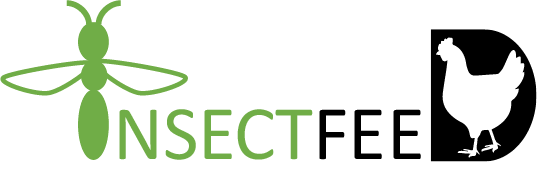Our research is divided in six different research topics. Read below what these topics are and what questions we intend to answer.
Ethics and welfare
Responsible insect production as feed for livestock raises basic philosophical and practical ethical questions.
We are investigating:
Photo by Jeroen Bouman
Substrate safety
The insect production sector offers much needed opportunities for upgrading low-quality left-over streams into high-quality protein and lipids for feed and food. However, these left-over streams can contain potential chemical
contaminants, such as mycotoxins. Mycotoxins are produced by fungi that infected the crops on the field or after harvest and belong to the most toxic natural compounds known.
We are investigating:
Insect health and immune system
Insect health (being free from disease or injury) is challenged when insects are exposed to harmful conditions. In nature, larvae of many fly species feed in aggregations on decaying materials that are extensively colonized
by microorganisms. Fly larvae seem to be quite resistant to diseases. Yet, knowledge on the immune system of the black soldier fly and housefly is limited.
We are investigating:
insect behaviour and health
Little is known about how to assess welfare of insects, in particular under mass-rearing conditions. We focus on developing a more comprehensive methodology for measuring insect welfare under mass rearing conditions.
We are investigating:
Livestock health and welfare
Inclusion of insects in feed may enhance the immune system of poultry. This may result in a reduction in the use of antibiotics in the poultry industry and contribute to livestock production without risks for human health.
Additionally, research suggests that the inclusion of insects in feedstuff reduces stress and feather pecking, improving poultry welfare.
We are investigating:
Economic robustness
Insects as feed offer the challenging opportunity of designing a novel value chain more or less from scratch. However, any value chain, especially a novel one, is exposed to a variety of risks that can adversely affect its
short- and long-term economic viability. Unexpected risky developments (e.g. demand and pricing) should be anticipated.
We are investigating:
